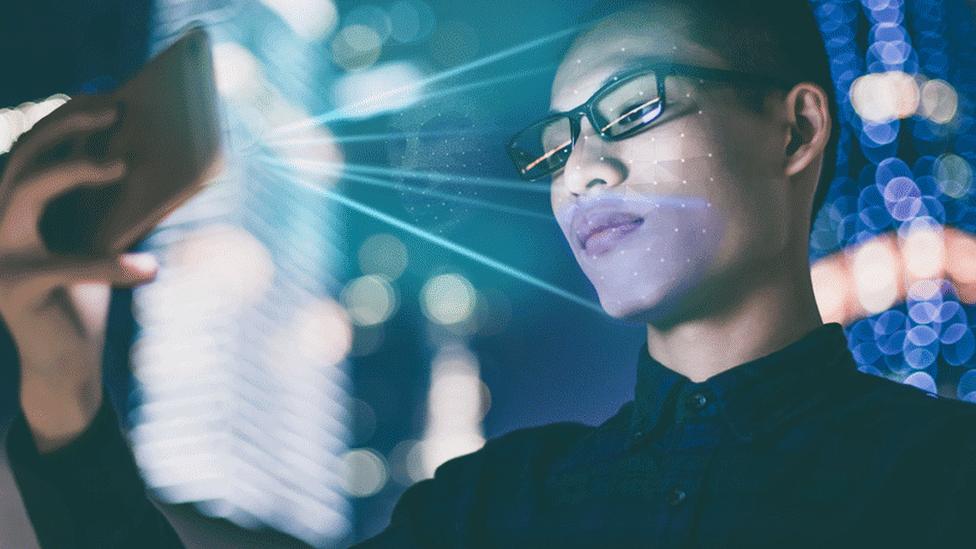Tech Tent - face data versus health data
- Published

Facial recognition is advanced in China but what do citizens think about it?
There is a data revolution transforming just about every aspect of our lives. And on Tech Tent this week we look at two areas - surveillance and health - where we have rather different attitudes to how our personal data is used.
When it comes to the mass retrieval of facial recognition data and its use in security and surveillance, China certainly leads the way. It has been used everywhere from schools to shops to public parks, to verify identity.
Stream or the latest Tech Tent podcast
Listen live every Friday at 15:00 GMT on the ┤¾¤¾┤½├¢ World Service
But two developments this week have tested the patience of Chinese consumers.
First, a new rule came in obliging anyone registering a new Sim card for a mobile phone to supply a facial recognition scan.
Then, the city of Zhengzhou became the first in the country to introduce facial recognition to its metro system, meaning travellers will be able to pay for journeys just by having their faces scanned.
Social media in China has plenty of built-in censorship, but Kerry Allen, China media analyst for ┤¾¤¾┤½├¢ Monitoring, says people have been quite unrestrained in their criticism of the advance of facial recognition.
"They are worried that China is trying to be ahead of the times at the expense of ensuring that the [relevant] security is in place," she explains.
We may think that privacy in China is not as big an issue as in Europe or the United States, but comments on Sina Weibo, China's equivalent of Twitter or Facebook, make it clear that it is a growing concern for many.
"They are saying things like 'this is like Big Brother... I'm very concerned that people might be able to steal my facial data and find out where I live. It used to be the case that people might find out my phone number and I'd get crank calls. Nowadays, they might find out my face and find out everything about me'."
But if people in China and elsewhere are increasingly concerned about handing over their biometric information, what about supplying data for health research?
This week's other item on the show is about a joint UK/Chinese project to collect data from smartphones and use artificial intelligence techniques to monitor symptoms of Parkinson's Disease. You can read more about that here.